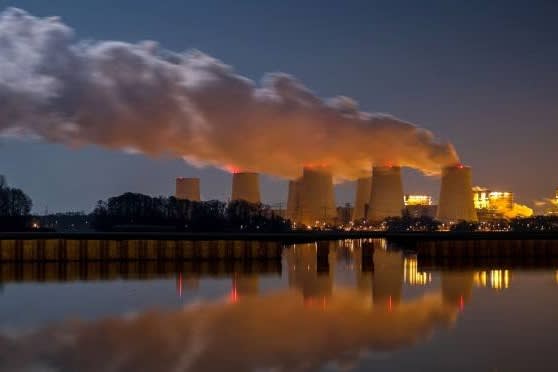Union Pacific suffers $100m cost hit from wildfires and rain
Union Pacific Corp updates
Sign up to myFT Daily Digest to be the first to know about Union Pacific Corp news.
The financial impact of wildfires and heavy rains on the Union Pacific railway so far this year could top $100m, as intensifying effects of climate change brought cascading disruptions to the company’s 32,000-mile network.
“It’s real money. It’s a real impact,” chief executive Lance Fritz told the Financial Times in an interview. “Weather is becoming more violent and we see that.”
In June and July, the Lava and Dixie fires took Union Pacific bridges out of commission in California to “gigantic” effect, Fritz said.
The Lava fire destroyed the Dry Canyon Bridge, a 150-foot-tall, 1,200-foot-long structure that is a key segment of a route from southern California to northern Washington state. Deconstruction and reconstruction of the bridge took 35 days, which “really screwed up the network”, necessitating reroutes that added more than 200,000 train miles to the network, Fritz said.
Union Pacific is North America’s largest listed freight rail operator, serving cities as far east as Chicago and New Orleans and west as Seattle and Los Angeles. The Omaha-based company took in $19.5bn in revenue last year.
Much of the US west has been in drought this summer, with bouts of roasting temperatures. California may experience what were once-in-a-decade wildfires almost every other year, scientists have said, due to more extreme heat and drier conditions.
The fires on the west coast forced Union Pacific to reroute trains through Salt Lake City, Utah, an effort that required redeploying labour, equipment and locomotives from elsewhere in the network at a time of deep strain in global supply chains.
“Stuff that took two days to get from California to Portland started taking seven and eight days. It just was a real challenge while the bridge was out,” Fritz said.
Overall, “we see drought that’s more extreme on our service territory, that generates more fire”, he continued, “so climate change looks quite real to us”.
Wildfire risk also snarled railways in Canada in July, when the transport ministry halted service for two days in portions of British Columbia and restricted train speeds nationally at certain temperatures. Local media reported fire damage to a Canadian National rail bridge in Lytton, British Columbia.
North American railroads have always been vulnerable to severe weather including extreme cold, snowstorms and hurricanes, through in some cases these are intensifying in power and precipitation.
Wildfires “were just an annoyance”, said Rick Paterson, an analyst at Loop Capital, “but in 2021, for the first time ever, because of climate change, they’re now in the mix in terms of serious threats to operations”, affecting every part of a rail operator’s cost structure.
The effects of climate change on railways will be an afterthought to investors until there is a meaningful impact on companies’ revenues and profits or typical seasonal weather risks are reshuffled, said Chris Wetherbee, an analyst at Citi.
Fritz said Union Pacific was taking protective measures such as raising tracks out of flood plains, installing bigger culverts to ease the flow of water and working to get better weather predictions.
However, there might be “a limit to how proactive [railways] can be in terms of climate resiliency”, said Paterson, because “they’re always under pressure from Wall Street about spending too much money”.
Union Pacific also has a commitment to reduce its greenhouse gas emissions by 26 per cent, in absolute terms, between 2018 and 2030. The rail group’s coal shipments continue to be an important source of revenue, though volumes have been weakening as fossil fuels lose market share at US power plants.
Elsewhere, Fritz noted “one big concern” with Canadian Pacific’s agreed acquisition of Kansas City Southern, which operates rail lines in both the US and in Mexico.
“The UP enjoys over two-thirds of all rail traffic to and from Mexico,” he said. “If that gets jeopardised because a new acquirer uses market power to move that business in their favour, that’s not good for our customer base, it’s not good for the US economy.”
Climate Capital

Where climate change meets business, markets and politics. Explore the FT’s coverage here.
Are you curious about the FT’s environmental sustainability commitments? Find out more about our science-based targets here
